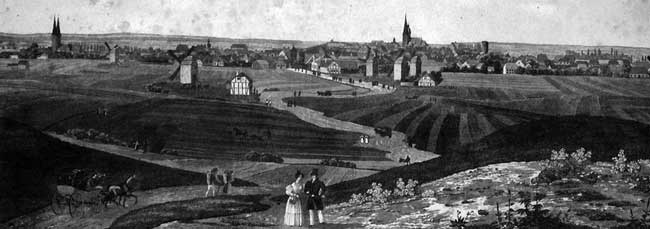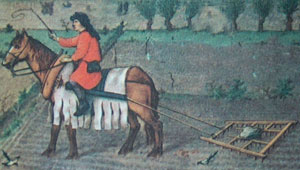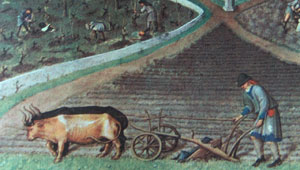The land alloted to the French colonists had to first be made arable. The Huguenots proceeded to convert unused swampy and sandy soils into valuable farm and horticultural land.
In order to build a life for themselves in Burg the French acquired land where they could. The cultivation of the farming and gardening plots they leased and bought prooved to be difficult due to their unfavourable location.
The majority of the immigrant French people were well-trained craftsmen full of ideas. However practicing their trade was impeded by the German guild laws and Burg's old-resident population. The citizens of Burg considered the French immigrants as competition. The guild laws stipulated that only those trained in accordance to German guild laws and who had the guild's permission could practice a trade. This resulted in many craftsmen, who wanted to work independently, moving away, and many adolescent sons of established Huguenots did not stay in Burg. This resulted in a change from the initial craftsmen colony to a farming colony.

Burg as seen from the south around 1830


Working on the fields around 1700
Next: The significance for the city's development
Previous: The French colony